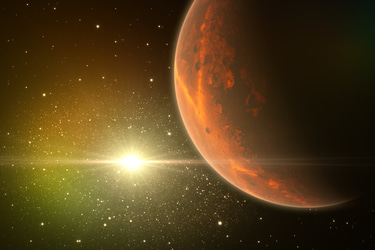The HS 1140 b: The Cold Exoplanet That May Harbor Liquid Waters in Its Atmosphere


Introduction to LHS 1140 b
LHS 1140 b is a fascinating exoplanet located approximately 40 light-years away from Earth, in the constellation of Fornax. Discovered in 2017, this cold planetary body has drawn considerable attention from astronomers and astrobiologists alike due to its intriguing potential to harbor liquid water in its atmosphere. The significance of this possibility cannot be overstated, as the presence of liquid water is a critical factor for the potential for life beyond our planet.
The Characteristics of LHS 1140 b
LHS 1140 b is a sub-Neptune type exoplanet, meaning that it has a mass greater than Earth but is substantially smaller than the gas giants in our solar system. This cold exoplanet measures about 1.4 times the radius of Earth, which suggests it has a substantial atmosphere. One of the most compelling aspects of LHS 1140 b is its location in the habitable zone of its host star, which is a red dwarf known as LHS 1140. This region, often referred to as the 'Goldilocks zone,' is where temperatures are just right for water to exist in a liquid state, assuming the right atmospheric conditions.
The Potential for Liquid Water
The potential for liquid water on LHS 1140 b stems primarily from its atmosphere and its distance from the host star. The exoplanet is believed to have a thick atmosphere, composed of hydrogen and other gases, which could create the necessary pressure and temperature conditions to sustain liquid water droplets. Although the exact composition of LHS 1140 b’s atmosphere is still a matter of research, scientists have utilized advanced atmospheric modeling to suggest that it could very well support liquid water under the right circumstances.
Understanding the atmospheric dynamics of LHS 1140 b holds immense significance for future explorations. If liquid water exists, it could provide insights into the potential for life in environments vastly different from Earth. Additionally, studying the atmospheric properties of this cold exoplanet might shed light on the processes that govern planetary atmospheres across the universe.
The Future of Research
The discovery of LHS 1140 b represents just the tip of the iceberg in the exploration of exoplanets that may harbor water. As technology advances, upcoming missions, such as the James Webb Space Telescope, will enable astronomers to conduct more detailed analyses of this intriguing world. By examining the chemical signatures in its atmosphere, scientists hope to determine the presence of water vapor and other compounds essential for life.
In conclusion, LHS 1140 b is a cold exoplanet that opens the door to numerous possibilities concerning extraterrestrial life. Its potential to harbor liquid waters in its atmosphere makes it a prime candidate for further research. As exploration continues, we may uncover even more about this fascinating planet, bringing us closer to answering the age-old question: Are we alone in the universe?
